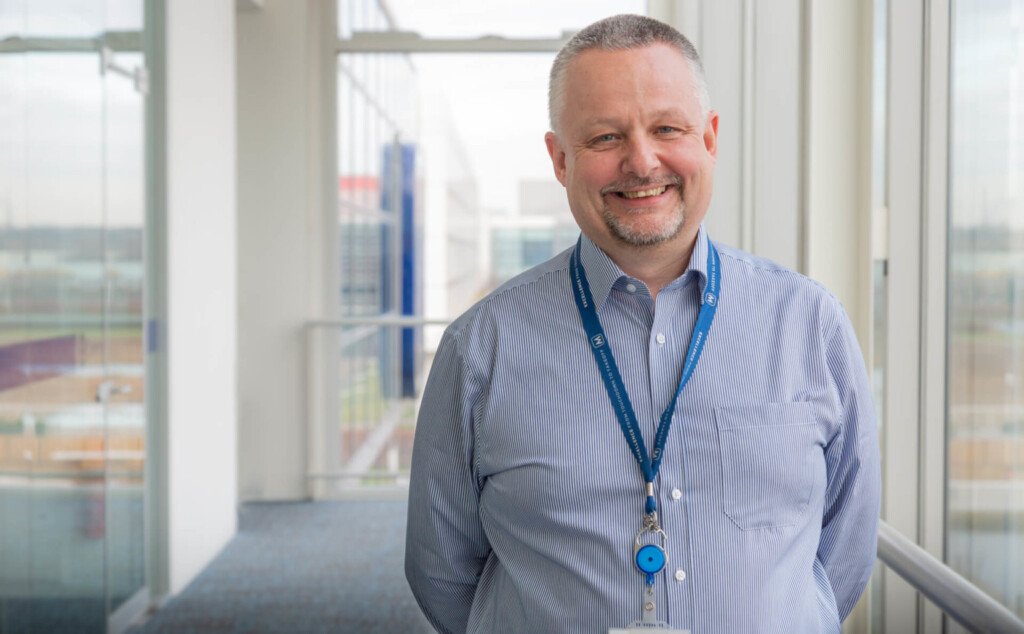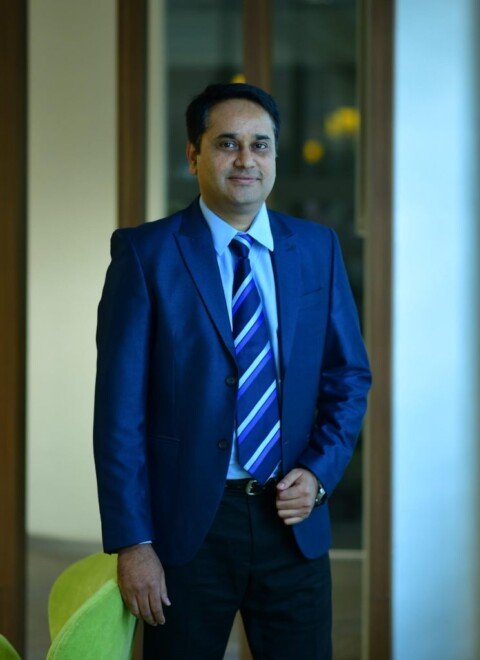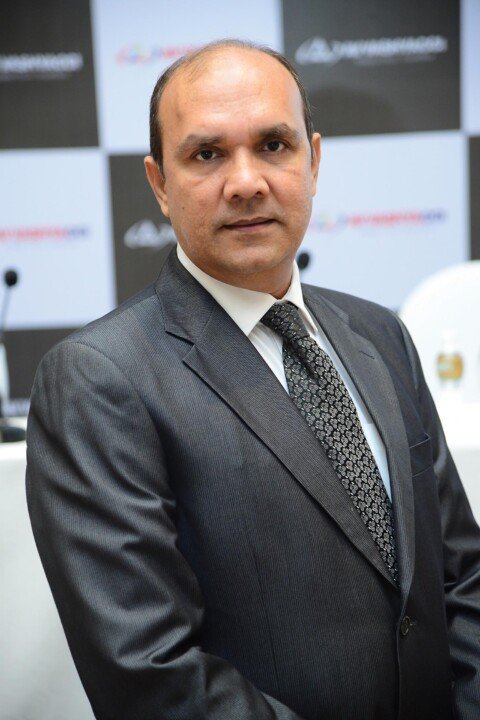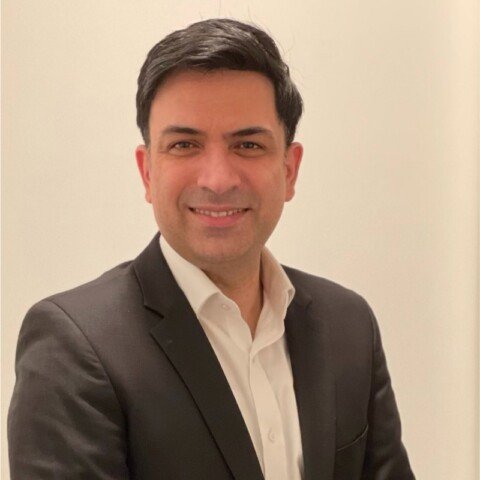Founded in 1833 and operating in 33 countries, Menzies Aviation is an independent Aviation Services specialist committed to offering accuracy, excellence and world-class services to its customers. With complete focus on cargo, the company has been operating in India in Bangalore since 2008. Boasting an extensive air cargo handling and management network and expertise globally, the company’s main aim is to deliver sustainably higher margins. Despite the challenges thrown by the pandemic, Menzies Aviation continued with its cargo operations and expanded its network across 17 new airports over the past one year. Expert Alan Glen, Vice President– Cargo Development in an exclusive interview with Ritika Arora Bhola, discusses about the global cargo services company’s efforts in rolling out pharma handling training programmes for its teams during 2020 that helped it to efficiently manage the herculean task of involved in vaccine handling and storage, how the company consistently evaluated techniques and strategies to ensure efficient operations in timely manner, and its renewed focus on identifying and forecasting future market opportunities.
Menzies Aviation is an independent aviation services specialist, committed to offering customers excellence, from touchdown to takeoff. Could you tell us more about your operations globally and in India?
We are committed to providing our customers with the best and safest service in the 37 countries we operate, which stems from our focus on people, passion, and pride. Our highly trained people are our point of difference and central to our success. We invest in training and operational communication to build a high-performance culture that delivers great service, and our engagement strategy that equips our team with the skills and tools they need to succeed.
Menzies was founded in 1833 and has evolved to become a global player in ground handling. We are growing our air cargo network and have expanded into 17 new airports over the past year. At present, we’re developing our fuel services and look forward to entering new markets across all three product lines. Considering India, we have been operating in Bangalore since 2008, where our focus is purely on cargo.
What makes your services different from your counterparts? Are there any competitive advantages compared with offerings from other competitors?
Once more, we must emphasise that people, passion, and pride are central to our approach, and we believe that everything starts with our people. We are particularly proud of how we manage the complex risks in our business. This is made possible due to our use of our MORSE (Menzies Operating, Responsibly, Safely, Effectively) methodology which ensures quality assurance and control and is supported by high quality IT systems employed throughout our bases. Furthermore, our global capability allows us to have specific geographical knowledge and deliver industry leading training.
As an aviation specialist, what are the most important parameters you follow while serving a particular airline/airport?
When completing our contracts, it is important for us to identify the different needs presented by individual stakeholders and meet them where possible. We are then able to assess our capabilities, including where we are unable to meet requirement viable alternatives.
Menzies Aviation has a strong commitment to innovation and marketing approach. How do you continue to embody this in your projects?
True innovation is easier said than done, however in our industry we have started to see the pace of innovation quicken. Using existing technologies from other markets is where the opportunities lie. There is a lot of advanced technology available, but the challenge is finding the opportunity to implement it. We are currently looking at piloting more new technology projects where we can show a quicker time to market with reduced risk. It is also essential to work with the support of our business partners to help realise the benefits of new technologies. In our discussions with customers, we strive to understand their priorities and guide the solutions that we deploy so that we best suit their needs.
What are the most important objectives you have set for 2021 and beyond and what services are you currently developing to accomplish those?
We are committed to our cargo growth strategy and pursuing the right opportunities for our business. We are investing a lot of effort on being able to quickly scale up to meet these goals, by looking at how we use our systems whilst meeting local requirements and providing staff training. Over the past year or so, many have become alert to the opportunity presented by cargo, so we expect to see the market continue on its growth trajectory and we are focussed on positioning ourselves well to capitalise on the future growth.
2020 is a disruptively important year for many. That said, to what extent did your operations remained unhindered although the pandemic continued to casts its spell over the globe?
Cargo continued to operate in many locations, with a variety of operating volumes; some lower than normal, and others significantly higher than expected. This was initially hard to manage, particularly with the introduction of large numbers of passenger freighters and charter operations. Many of our cargo teams have worked as hard if not harder than before the pandemic in especially challenging situations and again we take great pride in how well they have stood up to the many challenges. During 2020, we took on several large contracts globally, notably with Qatar Airways; some others were at very short notice. We have continued to grow our cargo operations internationally through 2021, which highlights the efforts and quality of service provided by our cargo team despite the challenges presented by the ongoing pandemic.
How did you ensure that your effective customer relationship policies outlast coronavirus and shape up to be far more effective in the new normal? So, how did you restructure your network strategy?
From a global customer perspective, we tried to maintain communications as normal, as we believe regular communication is the key. Despite a lack of face-to-face meetings, in many cases our communications with customers increased. Some of our customer’s relationships have become stronger as we have worked through and thrived to overcome operational challenges together.
With a massive COVID-19 vaccination drive underway across nations, how are you gearing up to support the airlines in meeting the demand and delivering vaccinations around the world?
As the pandemic was emerging, we rolled out global Pharma training for all of our cargo operations teams. This training was initially put in place to support our CEIV Pharma stations in Australia, which enable us to handle pharmaceuticals transported from all over the world, however it became clear that this capability would be needed globally.
We asked stations to review their processes to ensure preparedness. This has been successful as we have handled a high volume of vaccines through some lanes. TIACA and IATA have been incredibly helpful in sharing information for the handling of vaccines, which took away the initial concerns.
Could you further elaborate on the global best techniques and strategies you are planning to infuse into the company’s operations for efficiency in business and network enhancement?
We are consistently evaluating our techniques and strategies to ensure we are operating as efficiently as possible. In the past year, we took the time to review and restructure our cost base to become a leaner organisation, which over time will support our aim to deliver sustainably higher margins. This review included our method of managing risk and training, our systems, process, and a renewed focus that the changes are applied in a timely manner.
What are the items that account for a significant part of your freight handling to and from India? Are you ready to be a part of the country’s booming trade scenario going forward and spread out to more airports?
India is a market we always pay a lot of attention to and we are always on the lookout for new opportunities. Although we carry a lot of seasonable perishables, the Indian market is diverse and we see further potential for growth. We have been present in Bangalore since 2008 and have played an important role in establishing the airport as India’s largest perishable goods exporter, with Bangalore handling 31 per cent of India’s perishable shipments last year. The successful handling of perishables has been a result of close collaboration with the airport team, with which we look forward to cultivating even closer ties to achieve further success.







